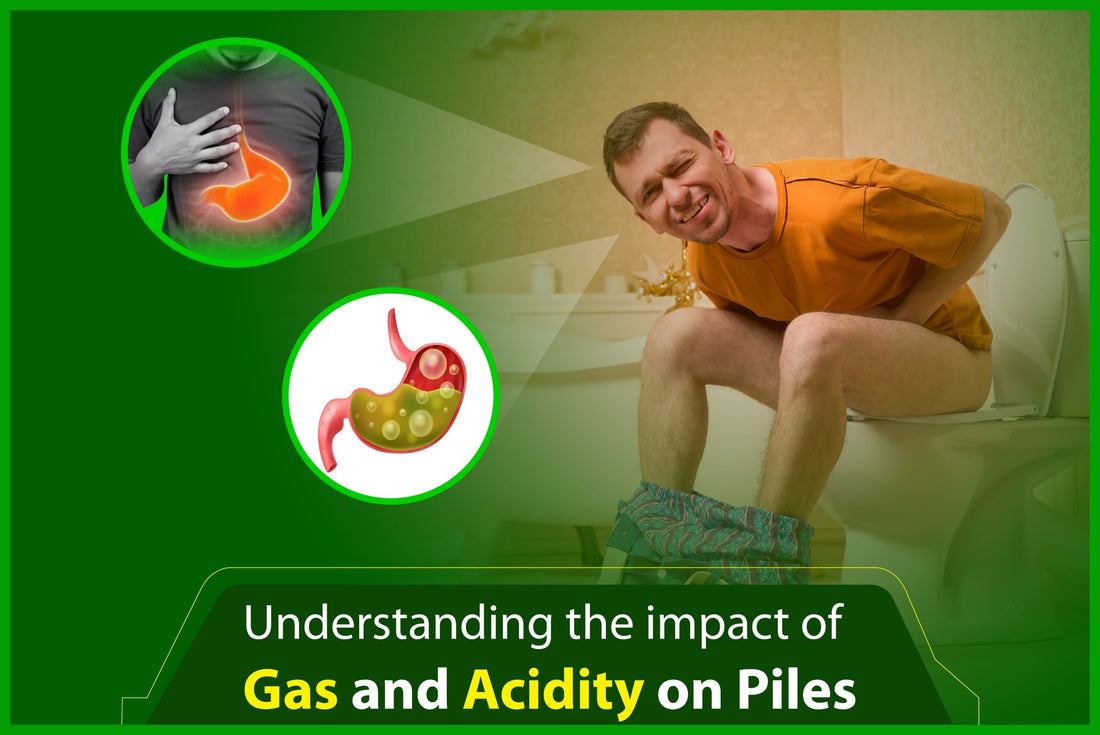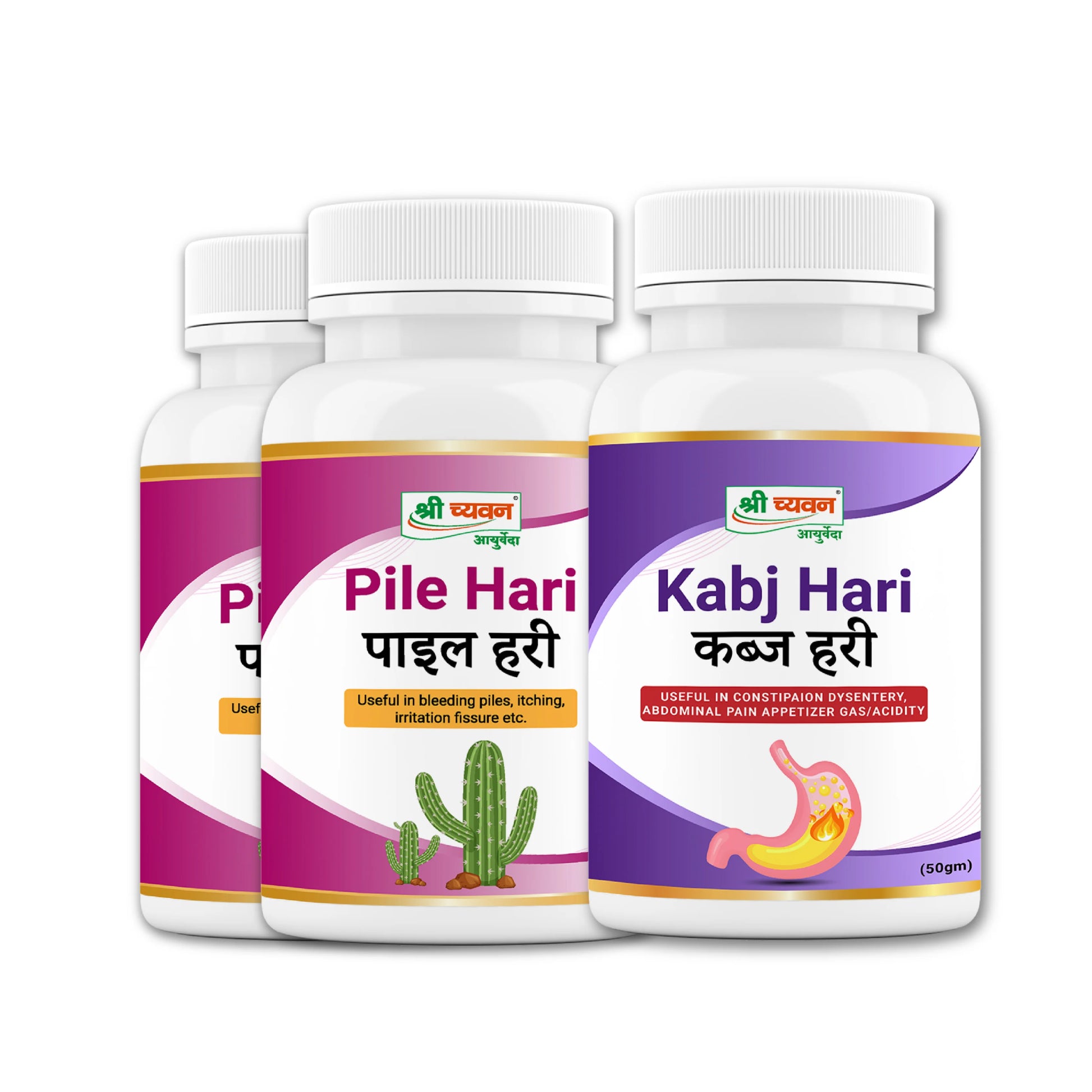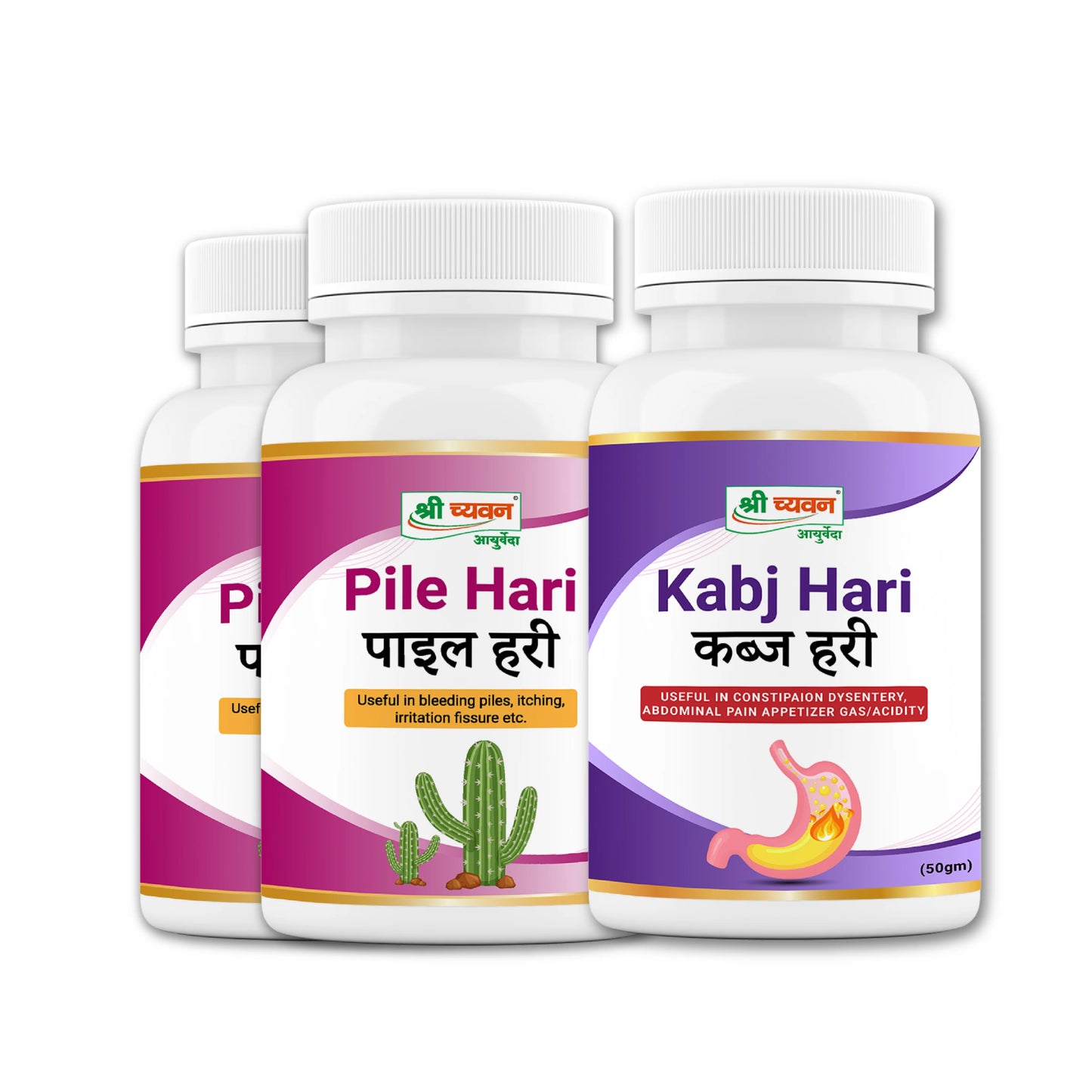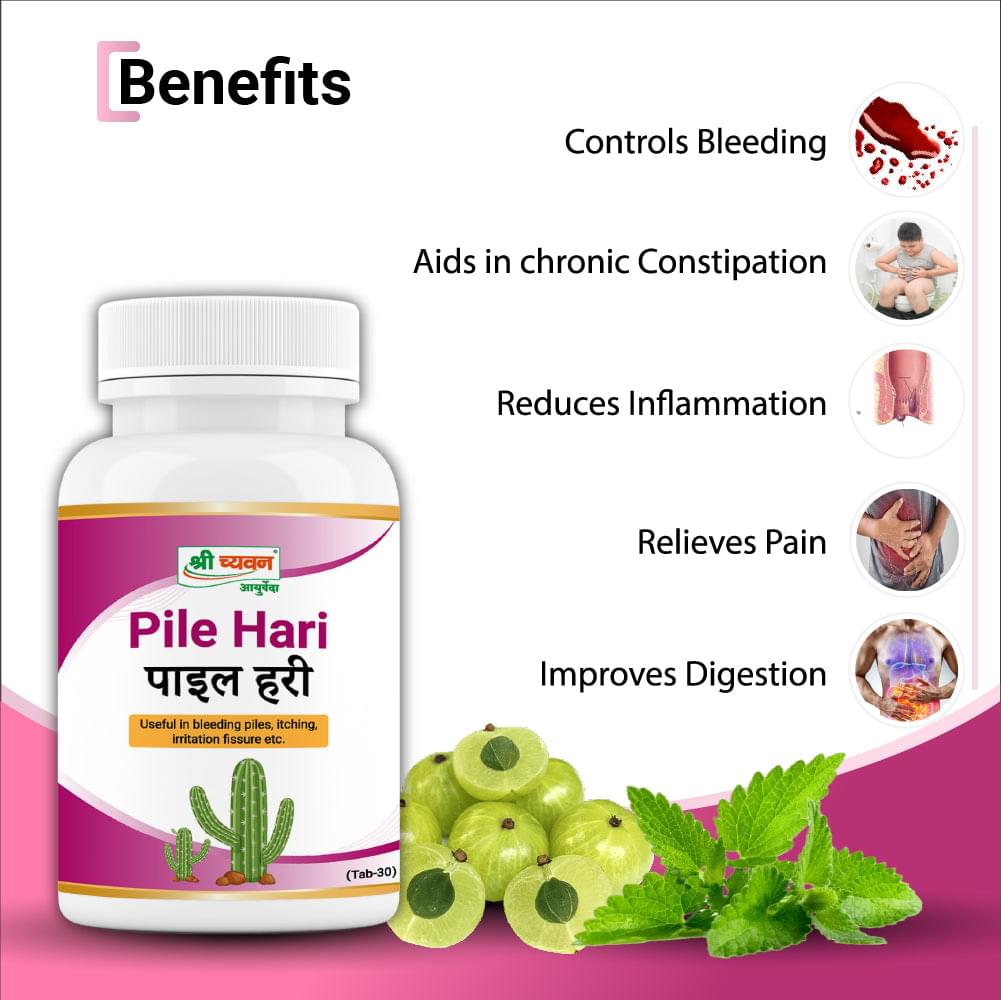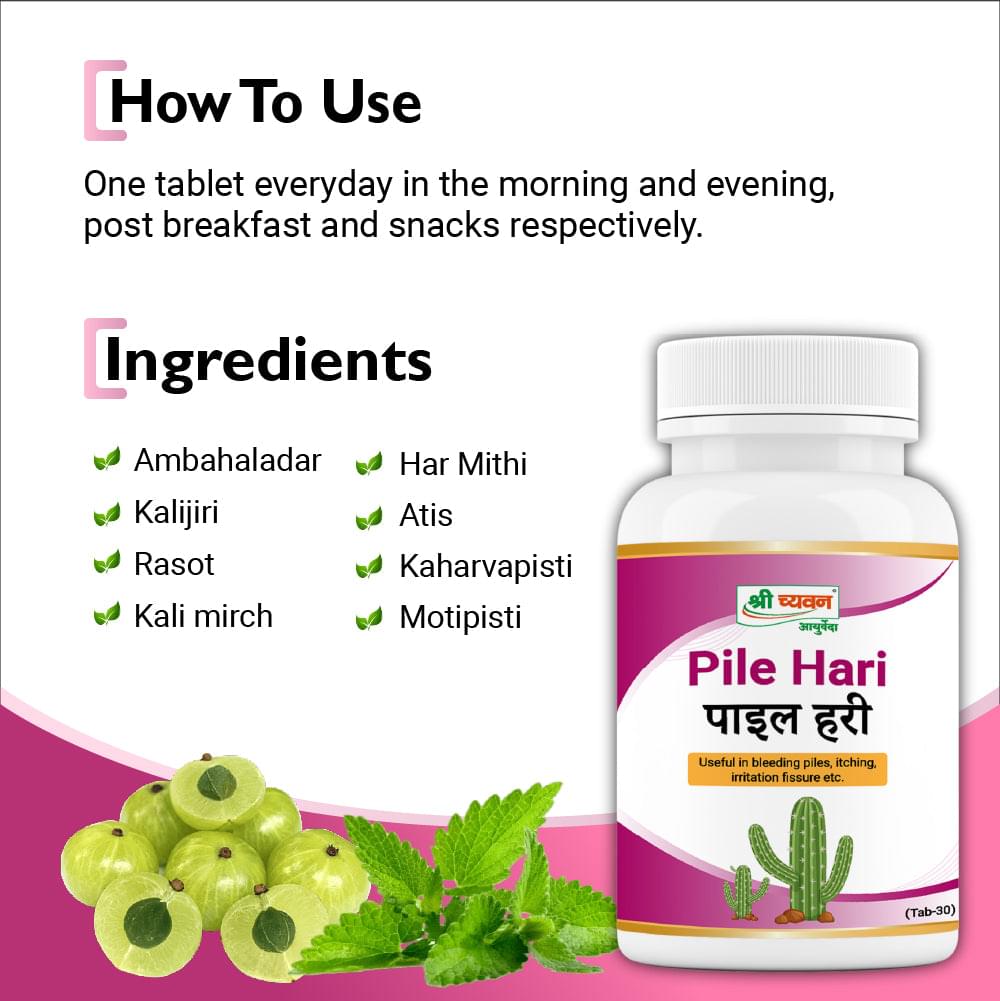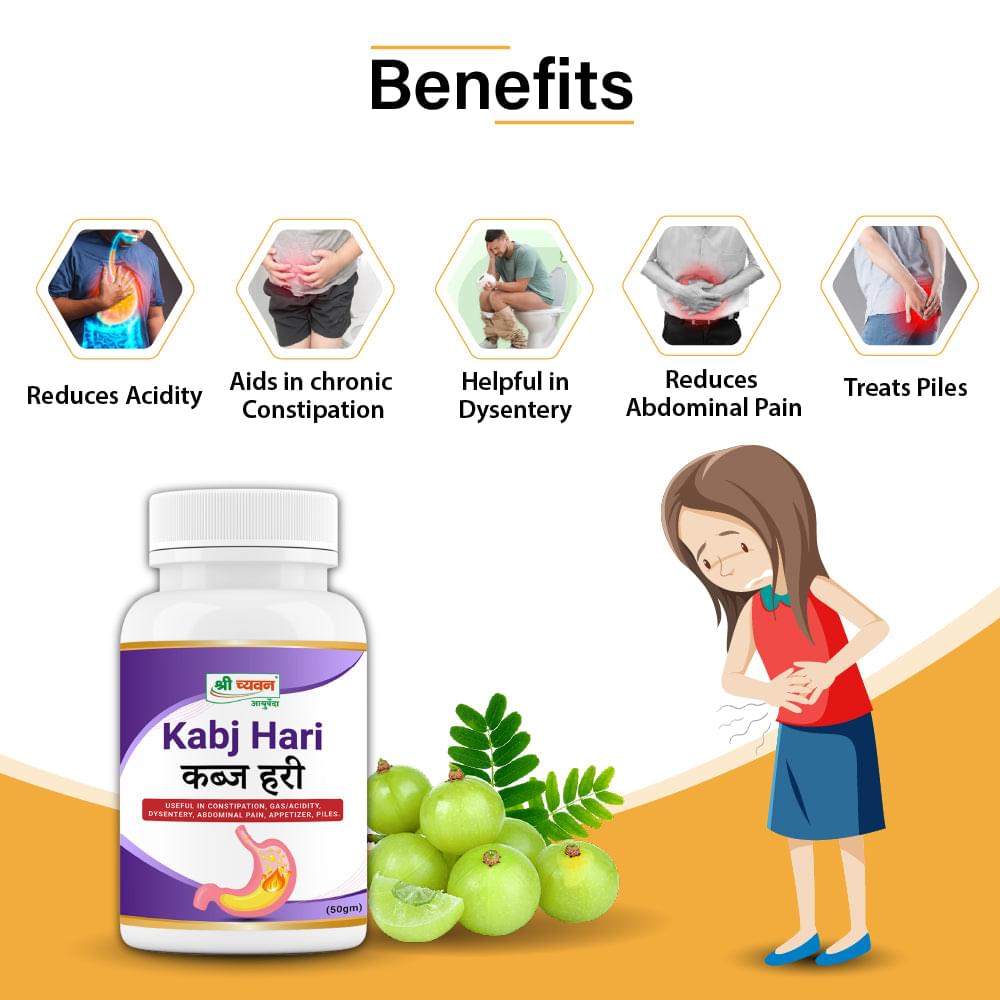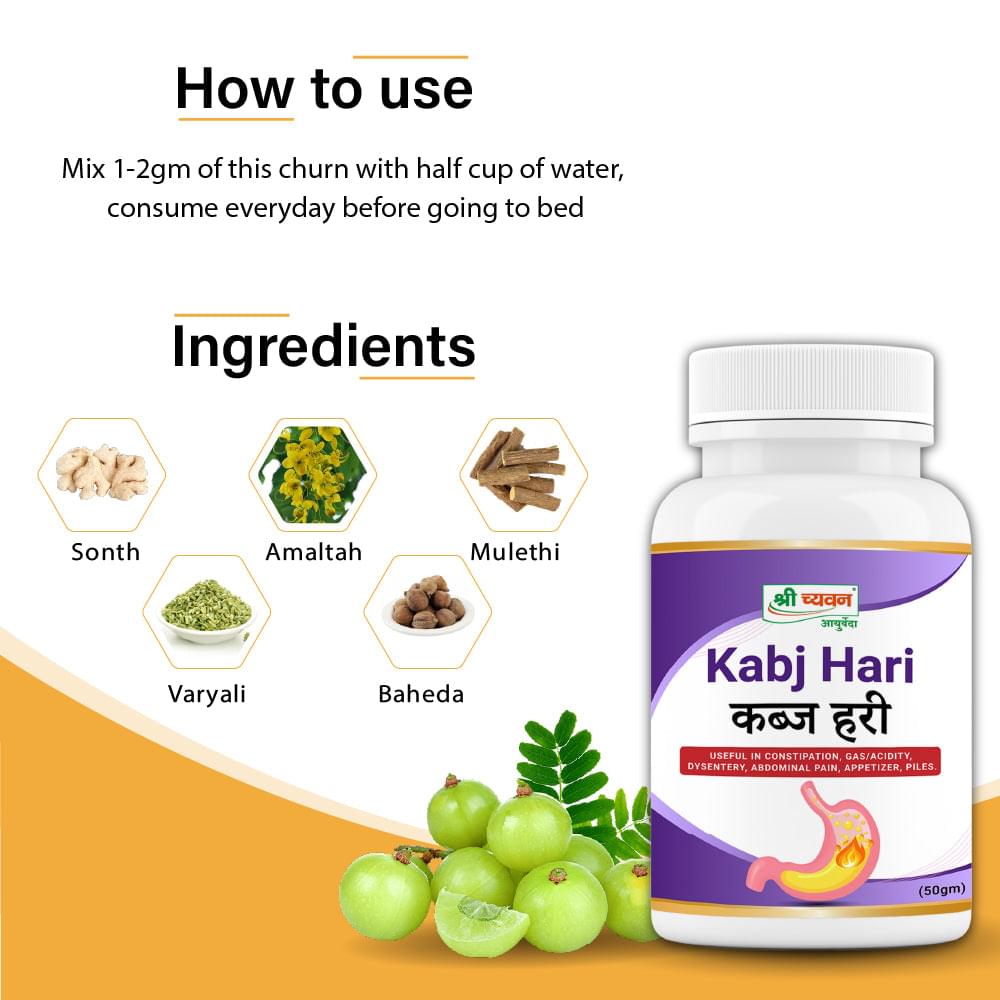Piles, also known as haemorrhoids, are a common but often debilitating condition affecting millions of people worldwide. In Ayurveda, piles have been recognized and treated for centuries. Ayurveda is a holistic system of medicine that emphasizes the balance of the body's doshas, or energy forces, as a fundamental aspect of health. Piles are considered a disorder of the digestive system and are intricately linked to gastrointestinal problems in Ayurveda. In this comprehensive blog post, we will explore piles from an Ayurvedic perspective, including their causes, symptoms, and the relationship between piles and gastrointestinal issues.
Understanding Piles in Ayurveda
In Ayurveda Terminology, piles is referred to as "Arsha." The term "Arsha" encompasses various types of piles, each with its unique characteristics. Ayurvedic texts classify piles into three primary types: "Bleeding Piles" (Rakta Arsha), "Dry Piles" (Shushka Arsha) and "Protruding Piles" (Bhagandara). These categories are based on the symptoms and characteristics of the condition.
Piles Causes
Ayurveda attributes the development of piles to a disturbance in the body's doshas, primarily Vata and Pitta doshas. Several factors are believed to contribute to this imbalance and the subsequent formation of piles, including:
-
Unhealthy Diet: Consuming excessive spicy, oily, and fried foods can aggravate the Pitta dosha and lead to digestive problems, including constipation, a primary cause of piles.
-
Sedentary Lifestyle: Lack of physical activity and prolonged sitting can weaken the muscles supporting the rectum, making it easier for piles to develop.
-
Suppression of Natural Urges: Ignoring the urge to defecate or holding it in for extended periods can cause an imbalance in Vata dosha and lead to piles.
-
Genetic Predisposition: Ayurveda acknowledges genetic factors in the development of piles. If your family has a history of the condition, you may be more susceptible.
- Pregnancy and Childbirth: The increased pressure on the rectal area during pregnancy and childbirth can contribute to the development of piles in women.
Piles Symptoms
Piles can manifest with a range of symptoms, and the specific presentation may vary depending on the type of piles. Common symptoms associated with piles in Ayurveda include:
-
Bleeding during Bowel Movements: This is a hallmark symptom of bleeding piles (Rakta Arsha). Bright red blood may be seen on toilet paper or in the toilet bowl.
-
Itching and Discomfort: Piles can cause itching and irritation around the anal region, leading to discomfort.
-
Pain: Dry piles (Shushka Arsha) are characterized by a throbbing pain in the anal area. This pain can intensify during bowel movements.
-
Swelling and Protrusion: Protruding piles (Bhagandara) involve the protrusion of swollen, inflamed tissues from the rectum, which may be pushed back manually.
- Constipation: Piles can lead to constipation, as the pain and discomfort associated with the condition can make it difficult to pass stools.
The Connection between Piles and Gastrointestinal (Gas and Acidity) Problems
Ayurvedic Perspective on Gastrointestinal Health:
Ayurveda places significant emphasis on maintaining a healthy digestive system as the foundation of overall well-being. According to Ayurveda, a balanced digestive system is essential for proper absorption of nutrients, elimination of waste, and the prevention of various disorders, including piles.
Role of Agni (Digestive Fire):
In Ayurveda, the concept of Agni, or the digestive fire, is central to understanding gastrointestinal health. A strong and balanced Agni ensures efficient digestion and assimilation of nutrients, while a weakened Agni can lead to the accumulation of toxins (ama) in the body.
Piles and Gastrointestinal Imbalances:
The relationship between piles and gastrointestinal problems is multifaceted in Ayurveda. Gastrointestinal issues, such as chronic constipation or diarrhoea, are often associated with an imbalance in the doshas, particularly Vata and Pitta doshas. These imbalances can result in the formation of piles, as the impaired digestion and elimination processes contribute to the accumulation of toxins in the body.
-
Vata Imbalance: A predominant Vata dosha can lead to dry piles (Shushka Arsha) due to its characteristics of dryness and roughness. Vata imbalances can disrupt the natural flow of stool and result in hard, difficult-to-pass stools, causing strain during bowel movements.
-
Pitta Imbalance: Excessive Pitta dosha can result in bleeding piles (Rakta Arsha) due to its heat and acidity. Pitta imbalances can cause inflammation and irritation of the rectal area, leading to bleeding during bowel movements.
- Ama Accumulation: Gastrointestinal issues can lead to the accumulation of ama, undigested toxins, in the body. Ama is considered a major contributor to the development of piles in Ayurveda.
Ayurvedic Medicine and Treatment for Piles
Our Ayurveda experts have formulated a best medicine for piles - Piles Care Pack, providing relief from piles pain and other effects.
- Kabj Hari:
Product Description: Our Kabj Hari helps in a lot of stomach related issues like gas, constipation and abdominal pain. Consumption of this churn will ease down the pain during constipation and ultimately will help you get rid of the regular constipation issues, gases and acidity.
Ingredients: It consists of Harde, Sonth, Mulethi, Baheda, Hing, Variyali, Amaltas, Black Salt, Blackpiper, Amla.
Benefits:
-
Improves Digestion: Shri Chyawan Ayurveda’s Kabj Hari effectively helps to cure your problems related to digestive system and facilitates smooth digestion process.
-
Relieves Constipation: It effectively helps to give you relief from stomach issues and constipation.
-
Bloating and Gases: Kabj Hari reduces stomach bloating, digestion issues and gases and reduces indigestion.
- Pure and Natural: Kabj Hari is made using all natural and herbal ingredients and ensures smooth digestion process.
How to use: Mix 1-2gm of this churn with half cup of water, consume every day before going to bed.
- Pile Hari Vati:
Product Description: Our Pile Hari Vati helps to heal inflammations and soothe pain and discomfort. It also has laxative properties that induce peristaltic movements, thus making the process of evacuating of bowels pain-free.
Ingredients: It consists of- Ambahaladar, Kalijiri, Rasot, Kali mirch, Har, Methatis, Kaharvapisti, Motipisti, Amla, Methi, Variyali, Bolbaddhras, Kaharvapisti.
Benefits:
-
Effective in treating Piles: Pile Hari is effectively helpful in reducing and providing complete relief from Piles.
-
Constipation: Pile Hari is helpful in treating constipation.
-
Aids in Stomach issues: Pile Hari also helps in stomach related problems like gases, bloating, etc.
-
Reduces Inflammation: It also helps in reducing inflammation caused due to piles and soothes the pain and discomfort.
- Pure and Natural Products: It is made using pure and natural products and do not cause any side-effects.
How to use: One tablet every day in the morning and evening, post breakfast and snacks respectively.
In Ayurveda, piles are viewed as a disorder of the digestive system, closely related to imbalances in Vata and Pitta doshas, as well as the accumulation of ama. The connection between piles and gastrointestinal problems is well-established, and addressing the root causes of digestive issues is a key aspect of Ayurvedic treatment.
-
Dietary Recommendations: Ayurveda emphasizes the importance of a balanced and digestive-friendly diet. This includes consuming easily digestible foods, increasing fiber intake to prevent constipation, and avoiding spicy, oily, and fried foods that can exacerbate pitta dosha.
-
Lifestyle Modifications: Maintaining an active lifestyle, practicing regular exercise, and avoiding prolonged sitting can help prevent piles and improve overall gastrointestinal health.
-
Herbal Remedies: Ayurvedic herbs like triphala, aloe vera, and haritaki are commonly used to alleviate constipation and promote healthy digestion. Triphala, in particular, is a renowned Ayurvedic formula for its cleansing and rejuvenating properties.
-
Panchakarma: Panchakarma, the detoxification and cleansing therapy in Ayurveda, can be beneficial for individuals with severe gastrointestinal imbalances. It helps remove accumulated ama and restore doshic balance.
- Yoga and Pranayama: Certain yoga asanas and pranayama exercises can improve blood circulation, strengthen the abdominal muscles, and promote overall digestive health.
By adopting a holistic approach that includes dietary modifications, lifestyle changes, herbal remedies and therapies like Panchakarma; individuals can not only manage piles but also improve their overall digestive health. Ayurvedic treatment for piles offers a comprehensive system of healing that focuses on restoring balance within the body, ultimately leading to a harmonious and healthy life.

